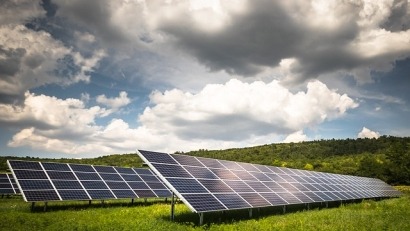
The comparative research study was originally ran in summer 2021 and has been conducted again this year to measure how understanding and attitudes have changed. The findings reveal a lack of awareness of how solar energy works and that understanding has not increased significantly in the past two years.
A detailed education campaign will be required to raise awareness of how solar energy works in order to tackle climate change, reduce greenhouse gases and understand the benefits of having solar panels installed to create energy required to run our homes.
The research from Project Solar UK reveals 16% of Brits think that you cannot get solar energy if it’s overcast – a figure higher than the 14% who thought this statement was true when the research was first run in summer 2021.
Fifteen per cent of Brits think solar energy can only be produced in the summer months drawing attention to the myths about how solar panels work. This is up 4 percentage points on the summer 2021 research.
Eleven per cent of Brits think you can only store solar energy if you live in the desert suggesting that people believe it cannot be stored by people living in Britain. Back in 2021 this figure was 7.5% indicating that our understanding of how to store solar energy is not correct.
One reason that may be putting people off finding out more is that they have concerns about investing in solar panels. It appears that 16% of Brits think solar energy is more expensive than fossil fuels when in fact investing in this sun powered system can save money over time. This figure was 14% back in 2021 – again underlining the need for further education around the costs and savings to be had with solar energy.
There is also a misunderstanding around storing solar energy (which can be done simply through having a battery as part of a domestic solar panels set up) with 12% of Brits thinking that solar energy can only be stored if its above 20 degrees celsius. The figure is a marginal increase on the figure from the previous piece of research when 11% stated that it could only be stored when above 20 degrees Celsius.
Awareness of how the battery works is clearly low and an awareness raising exercise will need to be undertaken if people are to actively consider moving from gas and oil to energy from the sun.
Simon Peat, CEO of Project Solar UK, who commissioned the two sets of research, has worked in the solar industry for over a decade was not surprised by the results. “There is a lot of work to do to help people understand that we can all take advantage of the sun’s energy to help heat and light our homes and run our appliances."
"It’s concerning that even now more than 11% of the British population consider that you need to live in the desert to access the full benefits of the sun to create energy. We have thousands of examples of domestic installations where people who live in towns and cities that may be considered to be mainly overcast and not particularly sunny, have taken full advantage of solar panels and are saving money on energy bills and doing their bit for the environment,” says Simon.

